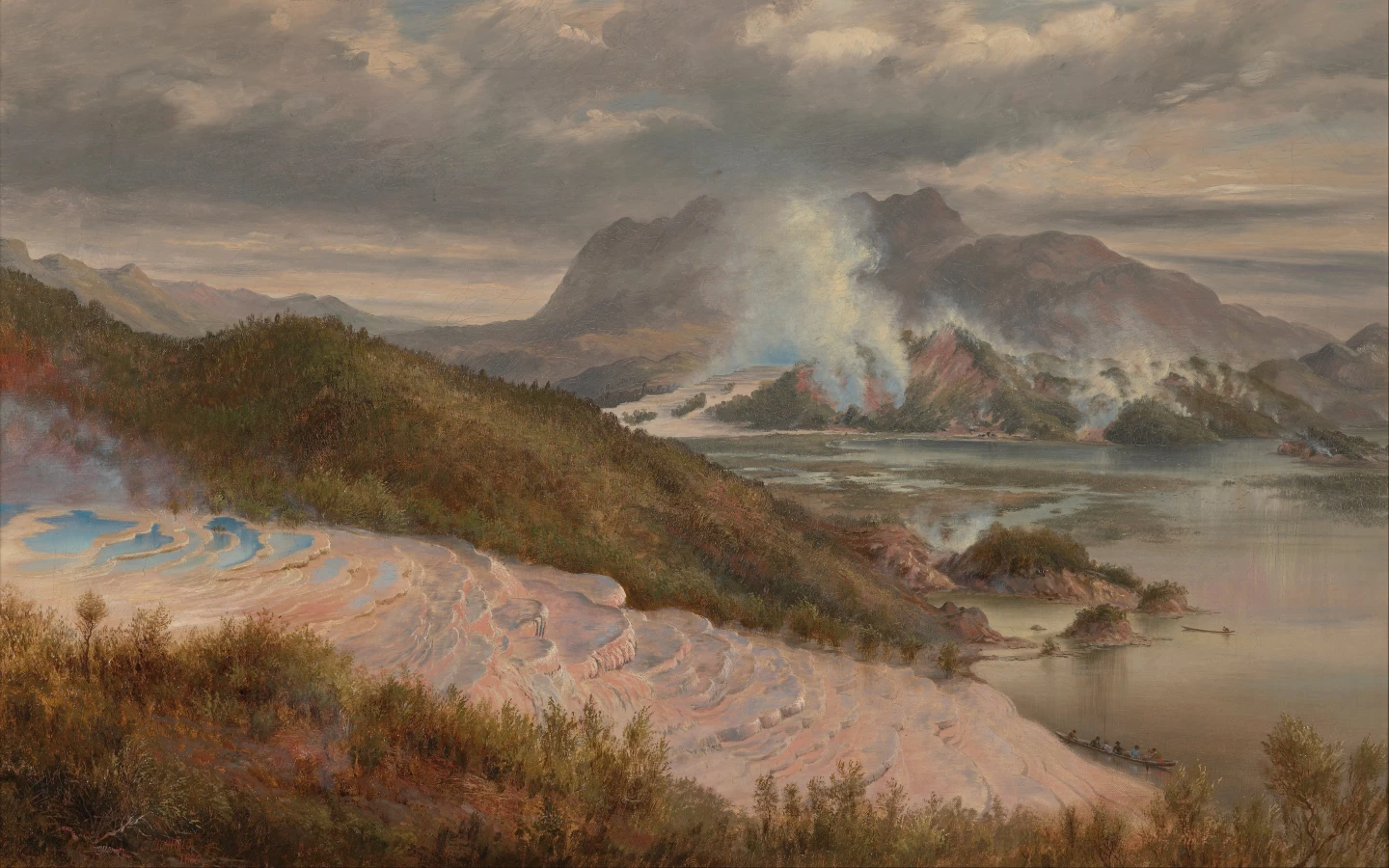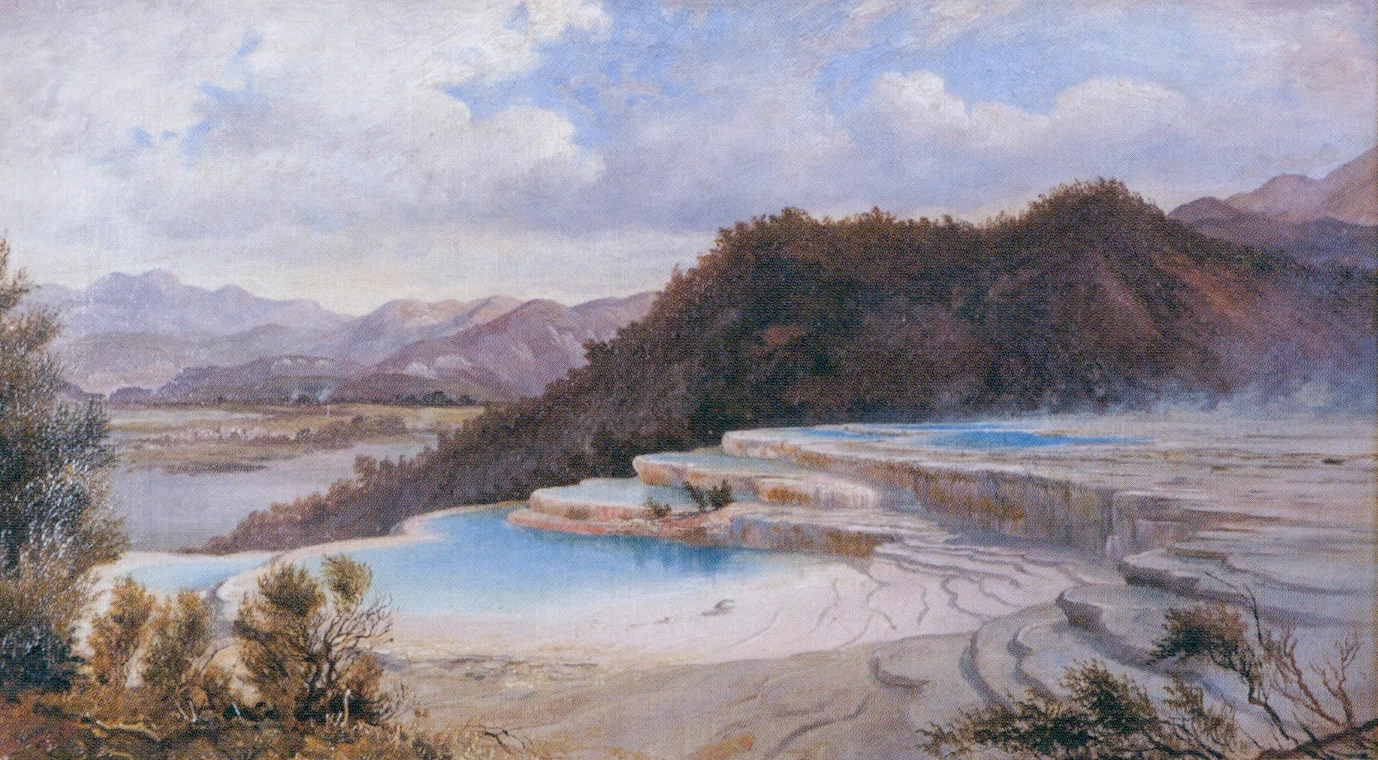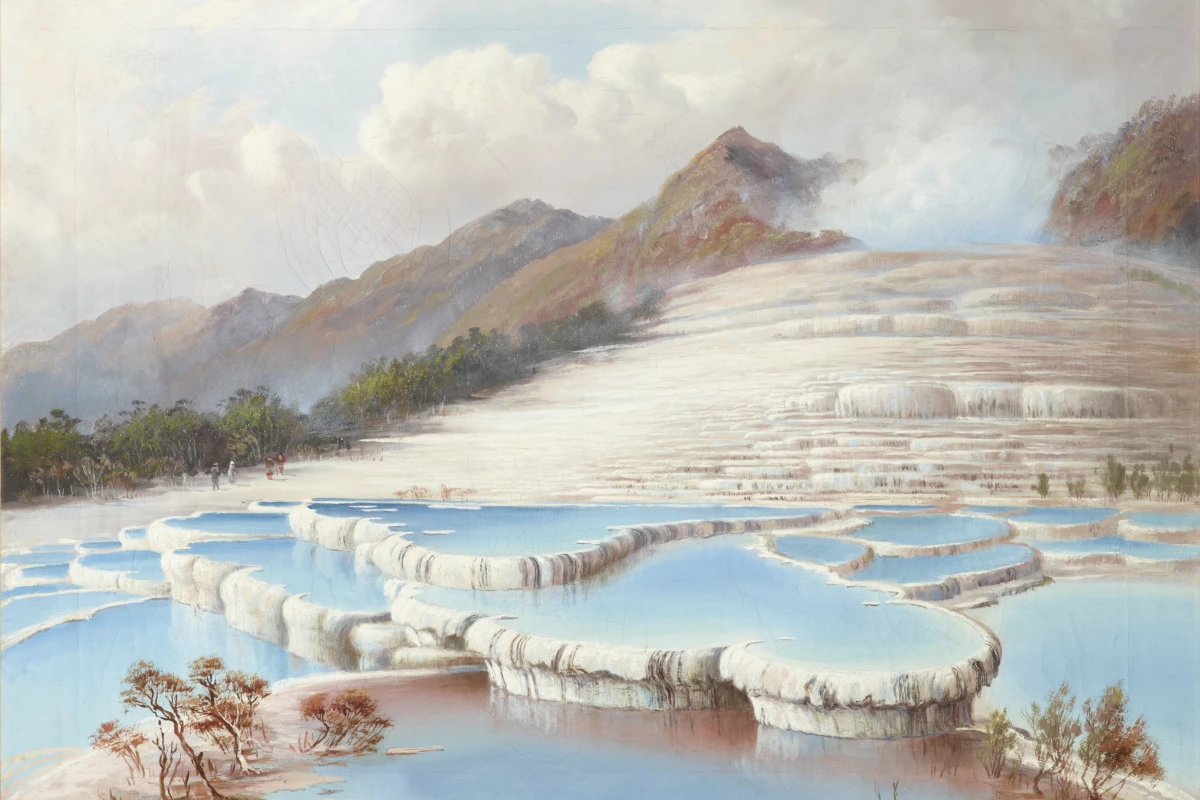The natural beauty of New Zealand is no secret these days, partially thanks to Peter Jackson's incredible Lord of the Rings movies. But back in the 1800s, there was a site so breathtaking, even compared to the rest of NZ, that it was spoken of as the 8th wonder of the world.
On the shores of Lake Rotomahana, not far from Rotorua and still a spectacular tourist destination to this day, sat a stunning cascade of pink and white silica terraces, each terrace a pool of geothermal water that had bubbled up through the Earth at the top of the hill and dropped down this series of steps. As the water cooled, the silica within crystallized to create and reinforce each terrace, some having a pinkish hue due to sulphides in the water. The still water reflected the sky above, and the delicate shapes of the pools resembled gentle clouds in the Earth.
Tourists from as far afield as Europe would visit the site, in a day when such a trip was an immensely costly affair requiring several months on a ship, a steamer up to Auckland, a horse and cart to Rotorua, a coach out to one lake, a boat across the lake, a hike over a pass to the second lake and two hours in a canoe out to the terraces. But such was the beauty of the site that many made the voyage. People would bathe in the little pools and hike around the area, enjoying the violently volcanic scenery all around.

The site is best known today from the paintings of Charles Blomfield, who was entranced equally by the site itself and by the money to be made churning out paintings of it. He created and reproduced hundreds of paintings of the terraces, gaining himself a sort of tawdry reputation in the art world as a one-trick pony. But his works are among the most spectacular memories of a site that no longer exists.
The terraces were destroyed by a cataclysmic volcanic eruption in 1886. Mount Tarawera, a few miles away, went off with a bang, spewing lava high into the air that destroyed most of the landscape, killed more than 150 people, buried several villages, and blasted Lake Rotomahana to some 20 times its original size, submerging the terraces under more than 200 feet (60 m) of water.
They're still there; an underwater drone was used in 2019 to comb the lake floor, and at 223 feet (68 m) below the surface, a series of silica formations were found that looked about like what scientists expected the terraces would look like, largely putting to rest any speculation about exactly where the terraces were.

In a time when many of us would love to be out traveling and seeing the beauty of the world, here's a piece of spectacular scenery that nobody can visit – pandemic or not.
Source: Waimangu Volcanic Valley






